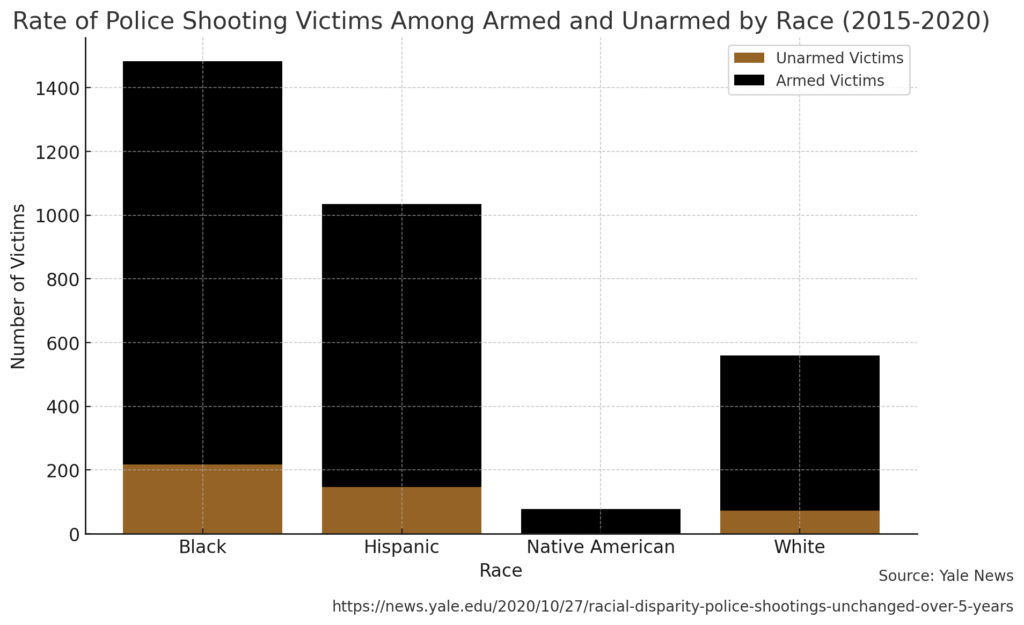Black Americans’ Mistrust in U.S. Healthcare System: A Deep-Rooted Issue
By Darius Spearman (africanelements) | June 17, 2024
Support African Elements at patreon.com/africanelements and hear recent news in a continuous playlist. Additionally, you can gain early access to ad-free video content.
A recent Pew Research Center study reveals that over half of Black adults believe the U.S. healthcare system is designed to hinder their success. This finding underscores a deep-seated mistrust rooted in historical exploitation and ongoing discrimination, which significantly impacts healthcare access and outcomes for the Black community (SOURCE: Pew Research Center).
Historical Exploitation and Unethical Medical Practices
The mistrust among Black Americans stems from egregious examples of unethical medical experimentation. Notably, the infamous Tuskegee Syphilis Study, where researchers deliberately withheld treatment from Black men for decades to study disease progression, stands as a stark reminder of medical exploitation. Additionally, the non-consensual use of Henrietta Lacks’ cells for research without her knowledge or permission further exemplifies the systemic abuse faced by Black individuals in the medical field (SOURCE: NIH).
The Impact of Discrimination on Healthcare Access and Outcomes
Ongoing discrimination continues to affect healthcare access and outcomes for Black Americans. Studies show that Black patients often receive lower-quality care compared to their white counterparts. This disparity results in worse health outcomes and a higher prevalence of chronic conditions among Black individuals (SOURCE: Commonwealth Fund).
Key Statistics Highlighting Racial Disparities in Healthcare
The recent Pew Research Center study reveals that over half of Black adults believe the U.S. healthcare system is designed to hinder their success (SOURCE: Pew Research Center). This belief reflects a broader mistrust rooted in historical exploitation and ongoing discrimination. Several key statistics underscore the pervasive racial inequities in healthcare access, treatment, and outcomes.

Access to Care and Health Outcomes
A significant 63% of Black adults say having less access to care is a major reason for worse health outcomes among Black people compared to other groups. Another 22% consider it a minor reason (SOURCE: Pew Research Center). This limited access contributes to disparities in health outcomes, such as higher rates of chronic conditions and lower life expectancy.
Maternal and Infant Health Disparities


African American women face severe disparities in maternal health. They are three times more likely to die of pregnancy-related causes than white women (SOURCE: The Century Foundation). Additionally, the African American infant mortality rate is twice the rate for white infants, highlighting significant inequities in early life health outcomes (SOURCE: The Century Foundation).
Violence and Life Expectancy
African American children are ten times more likely to die by gun violence than white children (SOURCE: The Century Foundation). This alarming statistic reflects broader societal issues that impact health. Life expectancy for non-Hispanic Black Americans stands at 71.8 years, the lowest since 2000 and below that of other racial and ethnic groups (SOURCE: Pew Research Center).
Negative Healthcare Experiences
A striking 55% of Black adults report having at least one negative experience with doctors or other healthcare providers. These experiences include having to speak up to get proper care or being treated with less respect (SOURCE: Pew Research Center). Such negative interactions further erode trust in the healthcare system.
Police Violence and Health

Black people are more than three times as likely to be killed by police than white people. Over a lifetime, 1 in every 1,000 Black men can expect to be killed by police (SOURCE: KFF). This statistic highlights the broader context of systemic racism that affects health outcomes.
These statistics underscore the urgent need to address racial disparities in healthcare. Confronting the impacts of structural racism on health is essential to rebuilding trust and achieving health equity for the Black community.
Rebuilding Trust Through Social Justice Education
To rebuild trust, experts recommend incorporating social justice education into medical training. This approach helps healthcare providers understand and confront unconscious biases. By examining healthcare practices through a racial equity lens, the medical community can begin to dismantle structural barriers that perpetuate health inequities (SOURCE: American Public Health Association).
Addressing Racial Disparities in Health Outcomes
Effectively addressing racial disparities in health outcomes requires a multi-pronged approach. Improving equitable access to quality care, diversifying the healthcare workforce, and dismantling racist structures and policies within and outside the healthcare system are crucial steps. Only by directly confronting racism as a fundamental determinant of health can we hope to achieve health equity for the Black community and all people of color (SOURCE: CDC).
“Only by directly confronting racism as a fundamental determinant of health can we hope to achieve health equity for the Black community and all people of color” (SOURCE: CDC).
The mistrust Black Americans feel towards the U.S. healthcare system is deeply rooted in historical and ongoing discrimination. Addressing this issue requires a comprehensive approach that includes social justice education, policy reform, and a commitment to racial equity in healthcare practices.
About the author
Darius Spearman has been a professor of Black Studies at San Diego City College since 2007. He has authored several books, including Between The Color Lines: A History of African Americans on the California Frontier Through 1890. You can visit Darius online at africanelements.org.
